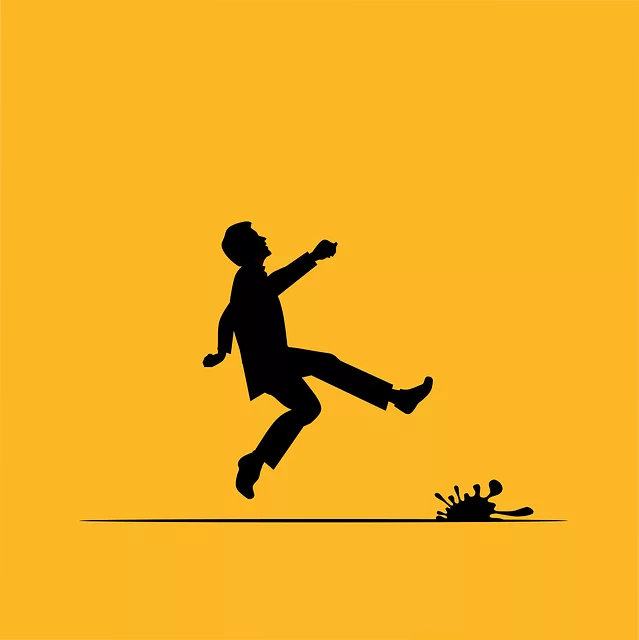Queens Traumatic Brain Injury Attorneys: Navigating Wrongful Death Cases

In Queens, New York City, individuals facing wrongful death claims due to traumatic brain injuries (…….
In the intricate landscape of legal services, a specialized field has emerged, catering to one of the most complex and delicate areas of law: traumatic brain injuries (TBI). “Queens Traumatic Brain Injury Attorneys” refers to a cohort of legal professionals adept at navigating the multifaceted aspects of TBI cases. This comprehensive article aims to dissect and elucidate various facets of this specialized practice area, offering valuable insights for victims, their families, and the legal community at large. By exploring its definition, global impact, economic considerations, technological advancements, policy frameworks, challenges, successful case studies, and future prospects, we gain a profound understanding of the critical role these attorneys play in advocating for individuals affected by traumatic brain injuries.
At its core, a “Queens Traumatic Brain Injury Attorney” is a legal practitioner specializing in representing clients who have suffered traumatic brain injuries resulting from accidents, negligence, or intentional harm. These attorneys possess a deep understanding of the unique challenges and complexities surrounding TBI cases, which often involve medical, legal, and emotional aspects.
The field’s evolution reflects the increasing recognition of the severity and long-term impact of traumatic brain injuries. Historically, TBI cases were primarily handled by general practice attorneys with limited specialized knowledge. However, as the medical community’s understanding of TBI deepened, so did the need for legal professionals equipped to handle these intricate matters. Over time, a dedicated niche emerged, with lawyers specializing in TBI law, ensuring victims receive adequate representation and compensation.
Medical Expertise: Queens TBI attorneys collaborate closely with medical professionals, including neurologists, neuropsychologists, and rehabilitation specialists, to understand the complexities of each client’s injury. This expertise is vital for interpreting diagnostic reports, prognoses, and treatment plans.
Legal Proficiency: They possess a thorough grasp of personal injury laws, negligence principles, and tort law. These attorneys navigate complex legal procedures, file claims, negotiate settlements, and represent clients in courts or alternative dispute resolution settings.
Client Advocacy: A key role involves advocating for victims’ rights, ensuring they receive fair compensation for medical expenses, lost wages, pain and suffering, and other related damages. They also support clients through the emotional and physical challenges associated with TBI recovery.
The global impact of “Queens Traumatic Brain Injury Attorneys” is substantial, given the widespread occurrence of traumatic brain injuries across diverse regions. According to the World Health Organization (WHO), TBI is a leading cause of death and disability worldwide, affecting individuals of all ages.
North America: The United States has one of the most robust legal systems for TBI cases, with well-established precedents and compensatory mechanisms. Canada also boasts a developed framework, though with regional differences in legislation and case law.
Europe: Each European country has its own approach to TBI litigation, with varying levels of specialization within legal firms. The European Union’s emphasis on patient rights and healthcare standards influences the handling of TBI cases across member states.
Asia: Countries like Japan and South Korea have seen a rise in TBI claims, driven by factors such as technological advancements and increasing awareness of brain injury recovery. China, with its vast population, also faces significant challenges and opportunities in this domain.
Rise in Sport-Related TBIs: The growing popularity of contact sports has led to a surge in TBI cases linked to athletic activities. This trend has prompted specialized legal practices focused on sports injury litigation.
Technological Advancements in Diagnosis: Improvements in neuroimaging and diagnostic tools have enhanced the ability to detect and assess brain injuries, potentially influencing case outcomes and legal strategies.
Globalization of Legal Services: With cross-border business activities increasing, international TBI cases are becoming more common, requiring lawyers with global expertise and understanding of diverse legal systems.
The economic aspects of “Queens Traumatic Brain Injury Attorneys” are multifaceted, impacting both the legal profession and individuals affected by TBIs.
Client Base: The primary clients are individuals who have suffered brain injuries through accidents (e.g., car collisions, slips and falls), medical malpractice, or violent acts. Families of deceased TBI victims also seek legal redress.
Case Volume: Case loads can vary significantly, with some attorneys handling a small number of complex cases annually, while others manage a larger volume of less severe but more numerous claims.
Fees and Compensation: Legal fees are typically contingent upon the outcome of the case, with a percentage of any settlement or judgment as the attorney’s remuneration. In personal injury cases, contingency fees range from 25% to 40%.
TBI victims often face substantial economic challenges, including medical bills, loss of income due to disability, and long-term care expenses. Successful legal outcomes can provide much-needed financial stability and resources for recovery and rehabilitation.
Technology plays a pivotal role in the practice of “Queens Traumatic Brain Injury Law,” enhancing case management and outcome prediction.
Neuroimaging: Advanced brain imaging techniques, such as MRI and CT scans, provide detailed insights into TBI severity and location, aiding attorneys and medical professionals in developing treatment plans.
Wearable Devices: These devices monitor vital signs and activity levels, offering valuable data for rehabilitation and legal assessments of a client’s recovery progress.
Case Management Software: Specialized software streamlines case documentation, communication with clients, and management of medical records, ensuring efficient case handling.
Legal Research Databases: Online legal databases provide quick access to relevant case law, statutes, and regulations, enabling attorneys to build strong legal arguments.
Digital Evidence Analysis: With the rise of digital evidence in TBI cases (e.g., surveillance footage, social media posts), advanced data analytics tools assist in evaluating and presenting such evidence effectively.
The legal frameworks governing “Queens Traumatic Brain Injury Attorneys” vary across jurisdictions but share common goals of protecting victims’ rights and ensuring just compensation.
These laws govern civil liabilities arising from accidents or negligent acts, providing a legal foundation for TBI cases. Key elements include duty of care, breach of that duty, causation, and damages.
When TBIs result from medical negligence, attorneys rely on medical malpractice statutes, which require proof of professional misconduct, harm, and causation.
In workplace-related TBI cases, workers’ compensation laws provide a mechanism for employees to seek benefits without the need for proving employer negligence.
Despite their specialized expertise, these attorneys encounter several challenges in representing TBI victims.
Complex Medical Issues: Understanding and explaining the nuances of brain injuries to both clients and courts can be daunting, requiring constant updating of medical knowledge.
Proving Negligence: Establishing liability, especially in cases with multiple parties or complex causation, demands meticulous investigation and legal strategy.
Long-Term Impact Assessment: Predicting and quantifying the long-term effects of TBI on a client’s life is challenging, necessitating expert testimony and innovative legal arguments.
Insurance Defense Tactics: Insurance companies often employ aggressive tactics to minimize settlements, making it crucial for attorneys to be adept at navigating these strategies.
Client: Sarah, a 32-year-old marketing executive, suffered a TBI in a severe car crash caused by a drunk driver. The attorney successfully argued that the defendant’s negligence led to long-term cognitive impairments and emotional distress, securing a substantial settlement to cover ongoing rehabilitation and lost career opportunities.
Client: Michael, a 55-year-old man, developed a subdural hematoma after a routine surgical procedure, leading to permanent brain damage. The attorney’s meticulous investigation revealed miscommunication between surgeons, resulting in a substantial medical malpractice judgment.
The field of “Queens Traumatic Brain Injury Law” is poised for growth and evolution, driven by technological advancements and changing legal landscapes.
Artificial Intelligence (AI): AI-powered tools can assist in case analysis, predictive modeling of TBI outcomes, and automated document review, potentially reducing case preparation time.
Virtual Reality (VR) Therapy: VR is emerging as a powerful tool for TBI rehabilitation, offering immersive experiences to aid in cognitive and physical recovery. Attorneys may need to adapt their strategies to incorporate this technology’s role in client care.
Specialized Courts and Tribunals: Some jurisdictions are establishing specialized courts or tribunals for TBI cases, ensuring faster resolution and more consistent outcomes.
Cross-Disciplinary Collaboration: As the understanding of TBI continues to evolve, collaboration between attorneys, medical professionals, and rehabilitation specialists will be essential for comprehensive client care.
“Queens Traumatic Brain Injury Attorneys” play a critical role in advocating for individuals affected by traumatic brain injuries, ensuring they receive just compensation and access to quality healthcare. By understanding the multifaceted nature of this practice area, attorneys can navigate complex legal and medical issues, deliver exceptional client service, and contribute to positive outcomes for TBI victims. As technology and scientific knowledge

In Queens, New York City, individuals facing wrongful death claims due to traumatic brain injuries (…….

In New York City, hit-and-run accidents, especially those involving pedestrians with traumatic brain…….

In The Bronx, DWI laws are strictly enforced with severe consequences. For individuals with traumati…….

Motorcycle crashes in Brooklyn and New York City are a significant safety concern, with high injury…….

Traumatic Brain Injuries (TBIs) in Queens require specialized legal support from Queens traumatic br…….

Slip and fall accidents are common in Queens, New York, leading to severe injuries, including trauma…….

Queens traumatic brain injury attorneys specialize in complex medical malpractice cases, focusing on…….

In New York City, understanding your rights after a pedestrian accident is crucial, especially with…….

Brooklyn faces a critical public safety issue with alcohol-related motorcycle accidents, leading to…….

In Manhattan, medical malpractice settlements play a crucial role in compensating victims of healthc…….